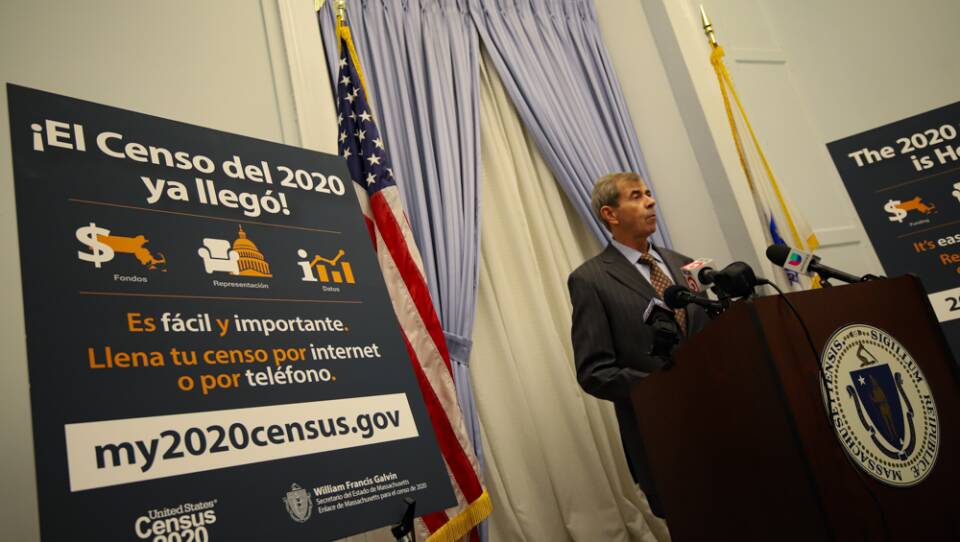As local officials wait for the U.S. Census Bureau to provide community-specific population data, Secretary of State William Galvin said Monday that legislation to put Congressional and legislative redistricting ahead of local reprecinting would be "devastating" to city and towns, putting him at odds with voting rights advocates.
Galvin, the state's chief elections official, testified before a legislative committee that it would be a mistake to pass a bill that would reverse the order of the reprecinting and redistricting, arguing that it would strip the authority of local government to define its own political geography.
"I will urge the governor to veto this is if if gets to that point. I believe he will," Galvin said.
But advocates say the change would allow the Committee on Redistricting to draw more precise and equitable House, Senate and Congressional districts without worrying about creating confusion for voters by subdividing local precincts.
It would also give the Legislature more time to finalize state and federal district maps before November, which is the time when lawmakers planning to seek reelection must make sure they reside within their new district boundaries.
Assistant House Majority Leader Michael Moran has filed a bill (H 820) that would remove the June 15 deadline for cities and towns to redraw local precinct boundaries, and instead require the Legislature to first redraw the boundaries for state and federal offices. Local governments would then conform their precincts to fit in the new districts.
The change would allow the Committee on Redistricting to use Census tracts and blocks to build new districts, which must reflect the growth in population in Massachusetts that has climbed 7.4 percent over the past 10 years to 7,029,917 people.
Supporters say these building blocks are smaller and more precise than local wards and precincts and will allow the Redistricting Committee to more easily create districts that are not only equal in size, but also ones that keep ethnic and racial communities together.
Moran did not testify on his legislation, but members of a coalition of voting rights groups known as the Drawing Democracy Coalition weighed in with their support.
"This legislation is going to be that imperative fix to continue to recognize the values of equity and racial justice here in the commonwealth so we can continue to draw district lines and have the Redistricting Committee have the flexibility to increase political power in communities of color," said Rahsaan Hall, director of the racial justice program with the ACLU of Massachusetts.
Galvin argued that local governments are best suited to adapt to the population changes that have occurred over the last decade. While he advised against using Census blocks to redraw districts, he said there is nothing stopping the Legislature from doing so if it wanted.
In the past, Galvin said his office has had to accommodate state and federal districts that didn't follow precinct boundaries by giving voters in those precincts different ballots. While confusing and less than ideal, Galvin said he would do it again if necessary.
"Have there been new ethnic communities come in? Have there been changes? Is there new construction? Are there new factors? Local governments are best able to deal with this," Galvin said




